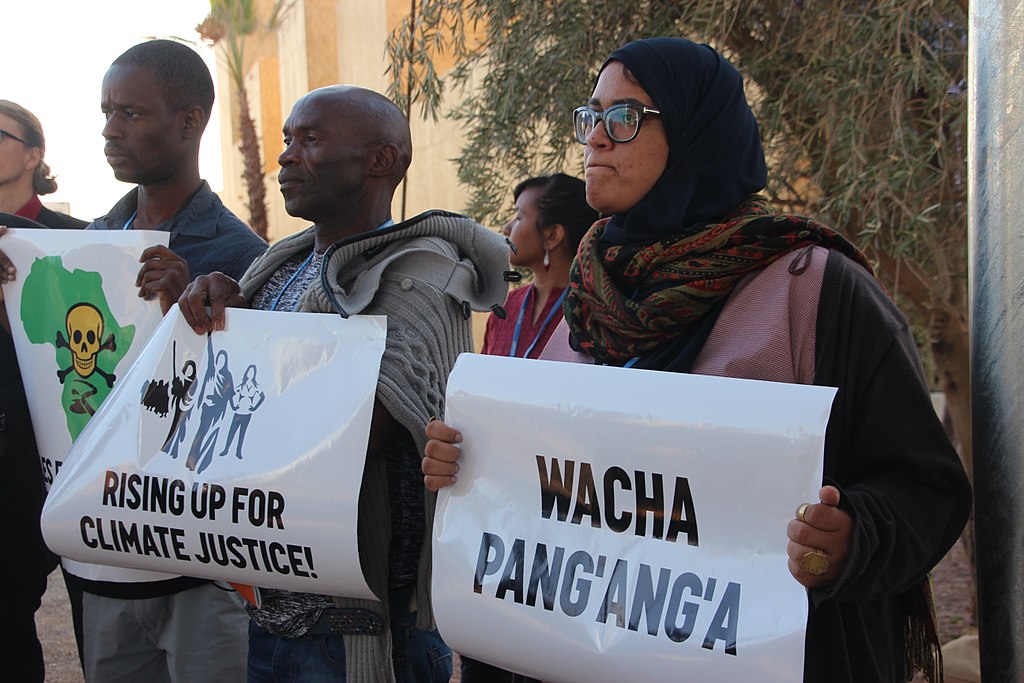Originally published on Climate Liability News.
Climate change-related lawsuits, once mostly limited to the U.S., have now been filed in nearly 30 countries, targeting governments and corporate polluters, according to the latest analysis of the trend.
A new report was published this month by the Grantham Research Institute on Climate Change and the Environment at the London School of Economics. It tracks the progress of the suits — filed since 1990 — as they have expanded beyond the U.S., and predicts the trend will continue.
“Holding government and businesses to account for failing to combat climate change has become a global phenomenon,” said Joana Setzer, research fellow at the Grantham Research Institute and co-author of the report. “People and environmental groups are forcing governments and companies into court for failing to act on climate change, and not just in the United States. ”
Climate cases have been brought in at least 28 countries. The majority of cases — 1,023 identified as of May 2019 — come from the U.S., but climate lawsuits have also been spreading across Europe and the Asia/Pacific region. Suits have also emerged in Canada, India, and countries in Africa and South America. According to the report, climate litigation in low- and middle-income countries has been growing. These cases have seen some initial positive developments, including a case in Pakistan recognizing human rights as a legitimate basis to hold governments accountable for climate change; a youth-led case in Colombia that was a victory for the rights-of-nature movement, recognized the rights of the Amazon River; and a case in South Africa recognizing climate change as a relevant consideration in environmental planning.
While these and the majority of other climate lawsuits seek to hold governments accountable, climate litigation is increasingly targeting corporate entities like fossil fuel producers. The report notes that a “new wave” of climate liability cases against these companies benefits from research that has shown the so-called Carbon Majors, a group of 90 companies, have been responsible for nearly two-thirds of carbon pollution since the Industrial Revolution. The cases also lean on the growth in attribution science, which links extreme weather events to climate change.
“In cases that seek to establish the liability of greenhouse gas emitters for harm, climate science can be critical to determining whether litigants have standing to sue. Science is an essential part of new litigation cases, substantiating that defendants’ actions have caused the plaintiffs harm,” the report said.
The cases against fossil fuel producers also seek to establish that the companies knew about the consequences of burning fossil fuels decades ago but deliberately worked to deny or cloud that risk to the public by funding front groups to undermine climate science and block climate policy. Plaintiffs in these suits seeking compensation for climate-related costs include municipal governments plus the state of Rhode Island and one commercial fishing association. ExxonMobil is also facing several investor lawsuits and a case brought by the New York attorney general alleging the oil giant misrepresented climate risks to shareholders.
Climate change is also becoming a wider cause for concern by investors, who have begun pushing harder to companies to disclose the risks to their businesses. According to the report, “failing to report climate risks and/or comply with recommendations is likely to increase litigation risk.”
“Until recently businesses might not have considered a climate change lawsuit to be a risk, but this is something all corporations should now be taking into account,” Setzer said.
More lawsuits are also making human rights claims, with the Grantham analysis noting that those have “had increasing resonance with judges in some strategic cases, despite challenges with regards to establishing causality.” The report mentions the investigation by the Philippines Commission on Human Rights into the responsibility of fossil fuel producers for human rights violations, as well as a recent complaint brought before the UN Human Rights Committee by Torres Strait islanders against the Australian government.
“Human rights will likely continue to be intrinsic to future cases, given increasing acceptance of the impacts of climate change on health, livelihoods, shelter and other fundamental rights,” the report said. A recent report by a United Nations expert further defines the connection between climate breakdown and human rights violations, and suggests that governments and fossil fuel corporations should be held accountable.
The report concludes that the “use of climate change litigation as a tool to effect policy change is likely to continue,” despite the expense and risks. “Litigation is clearly an important part of the armoury for those seeking to tackle climate change,” Setzer said.
Main image: Fossil Fuels out of Africa COP22 action. Credit: Takver, CC BY–SA 2.0
Subscribe to our newsletter
Stay up to date with DeSmog news and alerts







